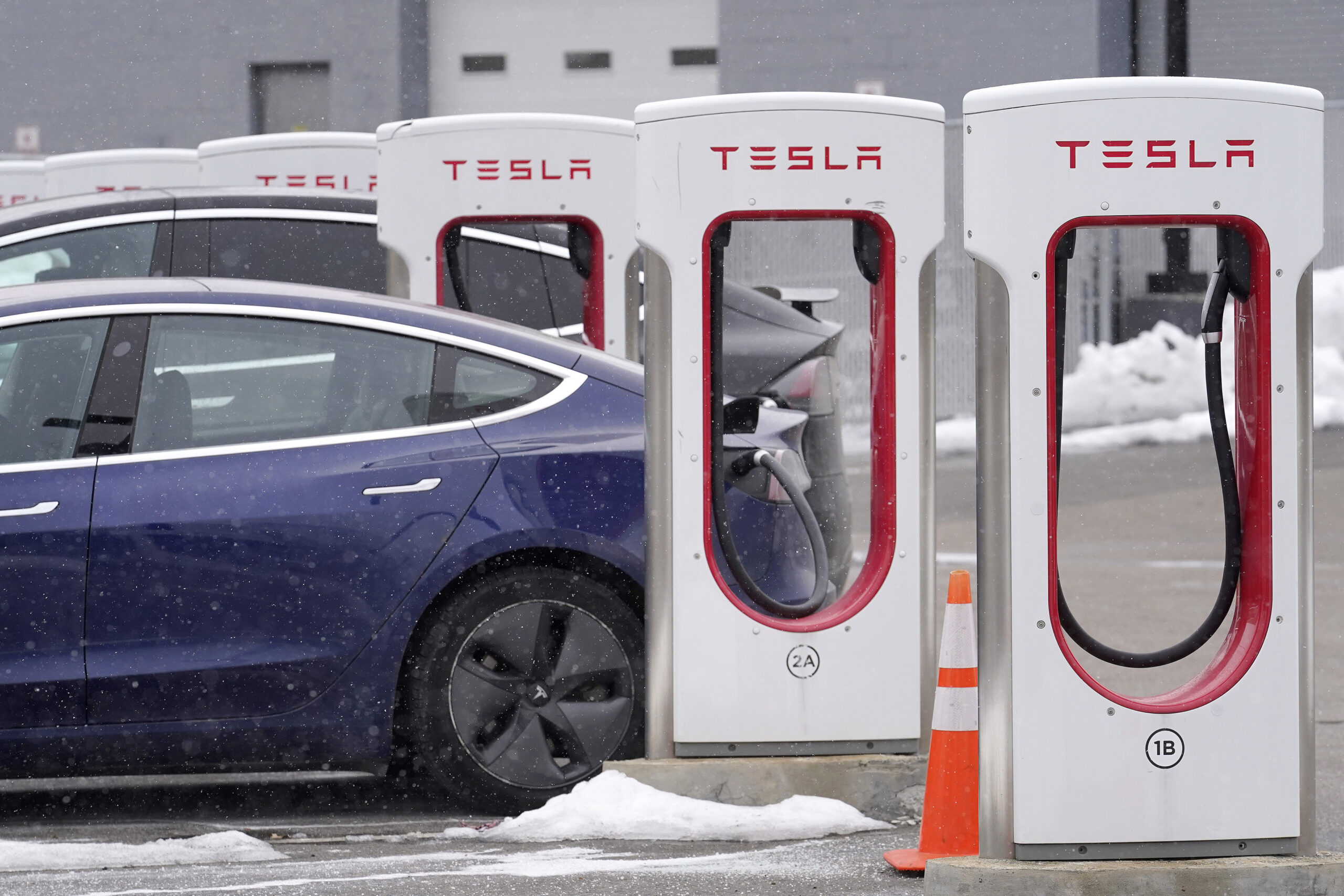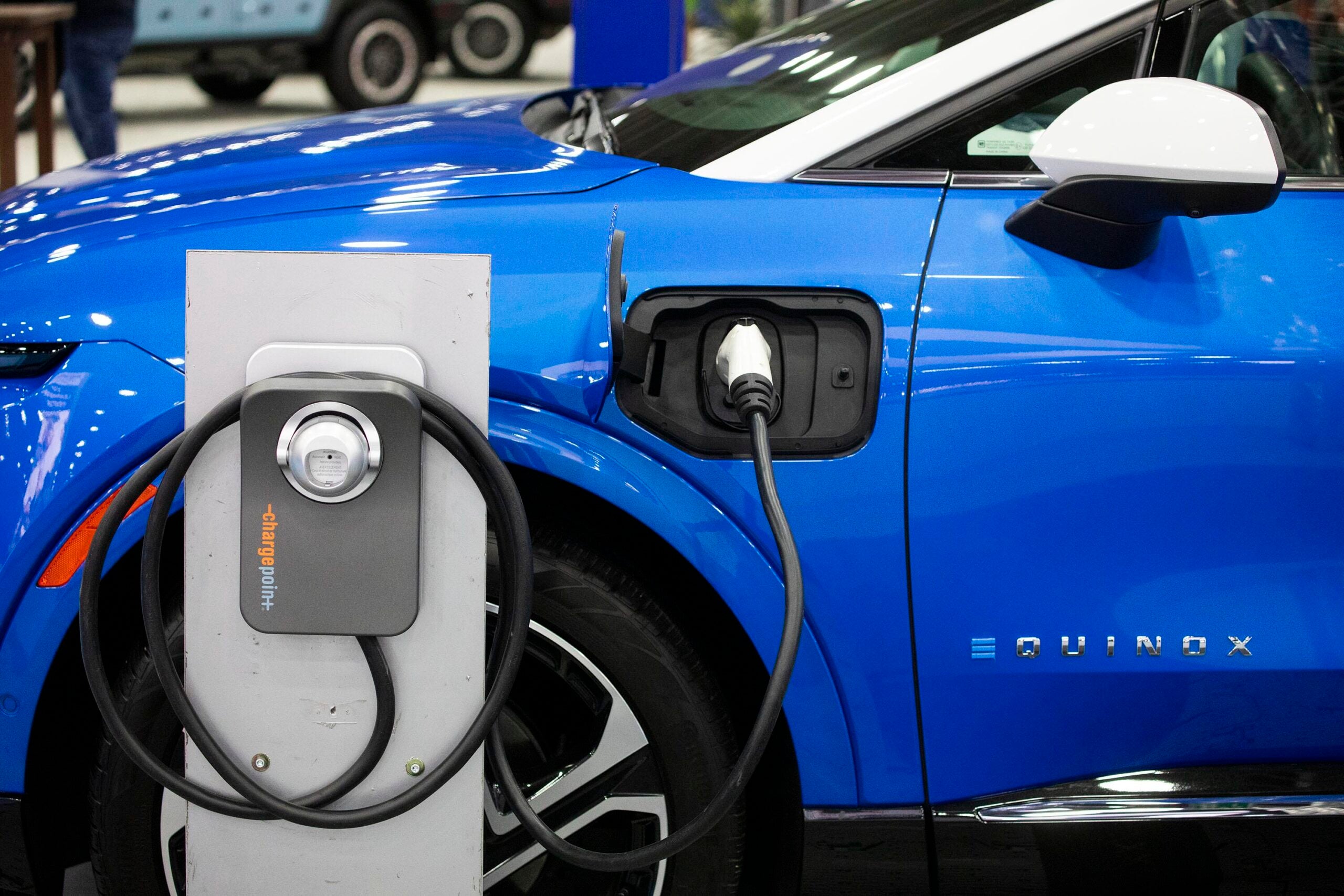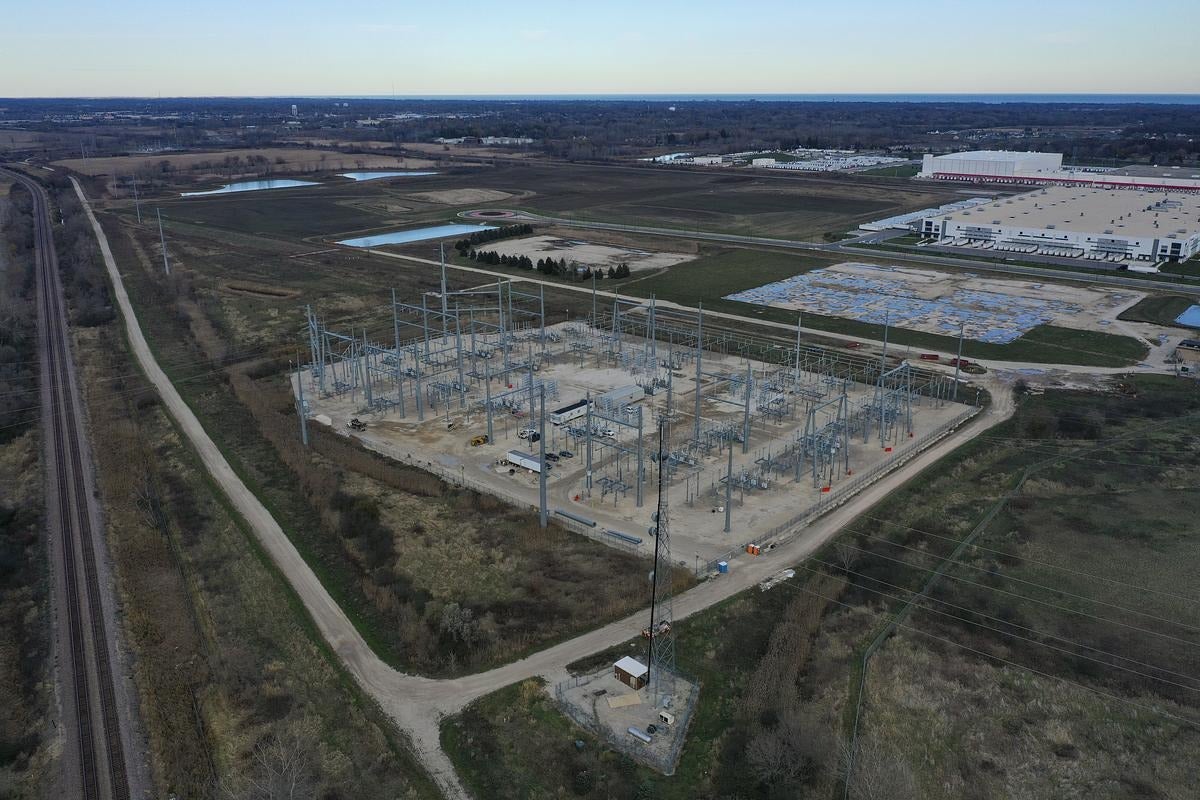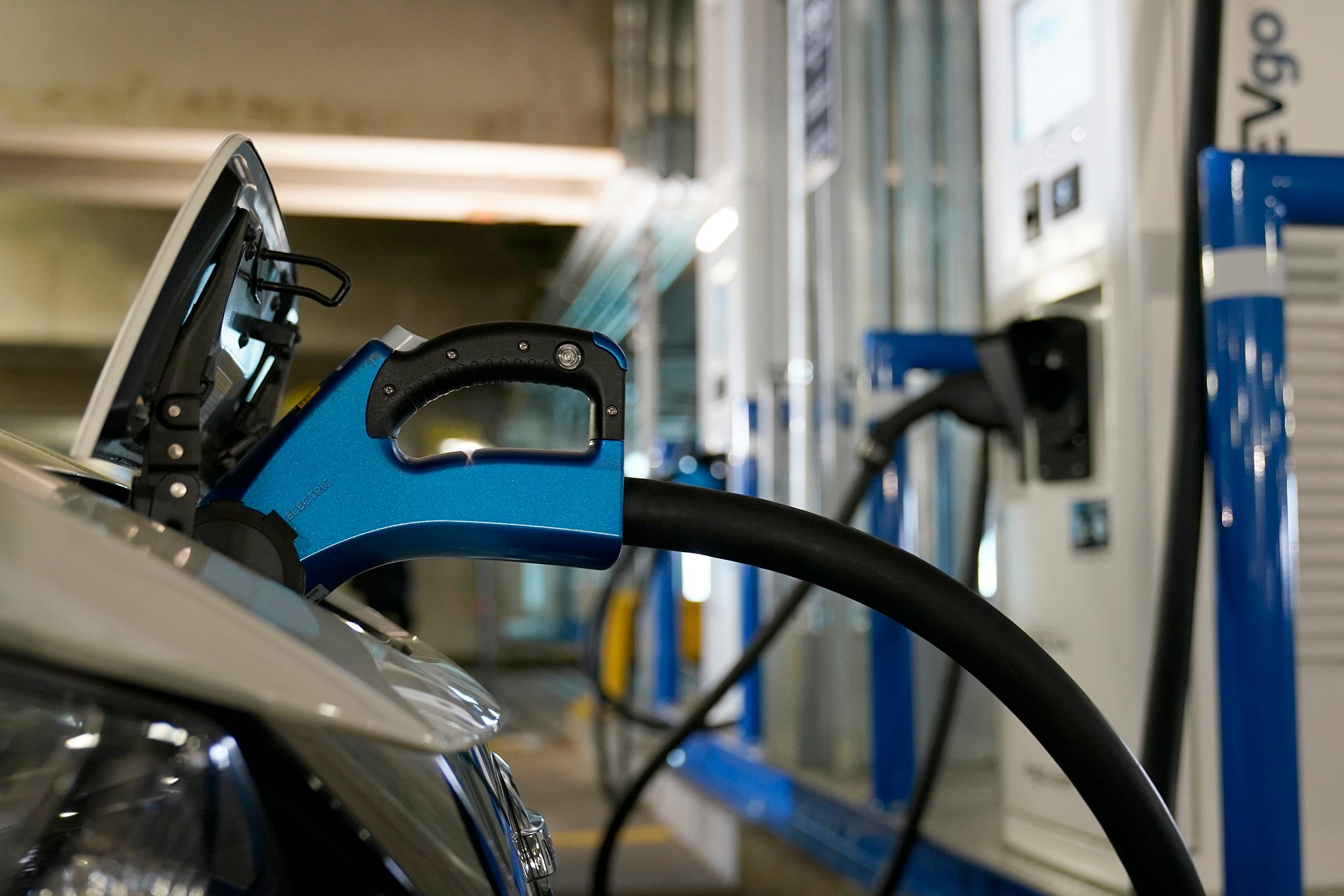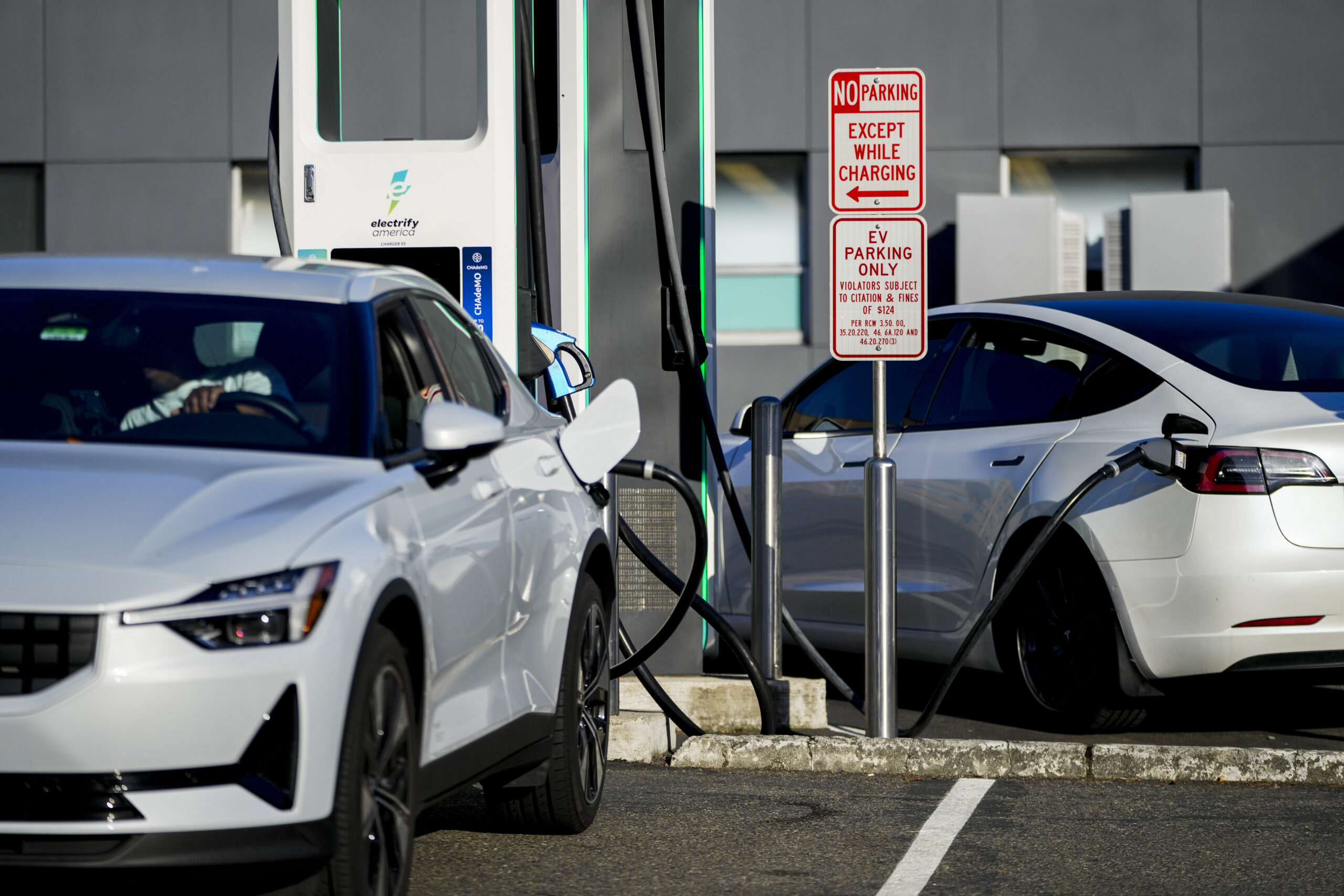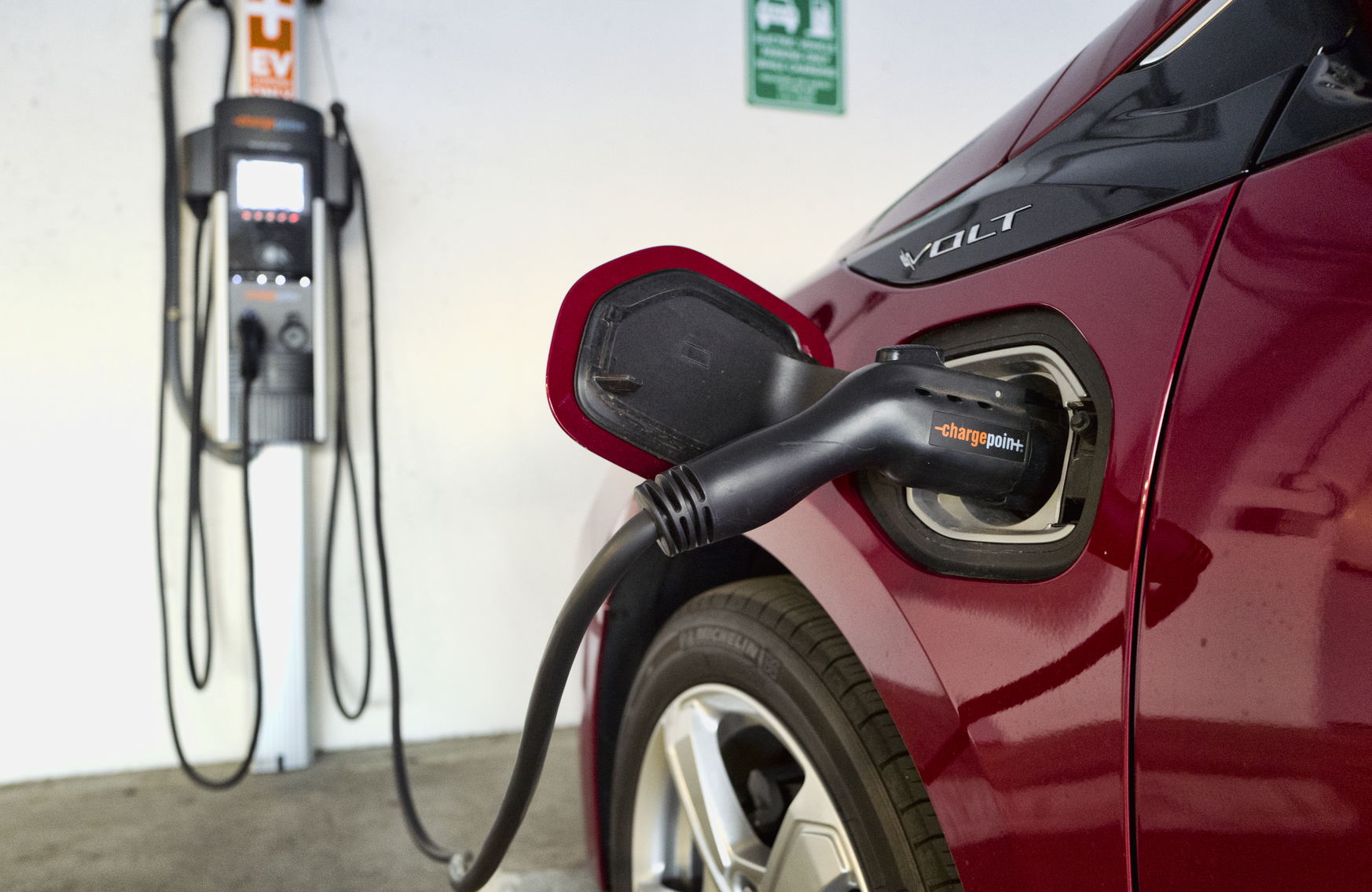The Wisconsin Department of Transportation hopes to nearly double the number of publicly-available high speed electric vehicle charging stations around the state with an infusion of federal dollars — but an outdated state law stands in the way.
Over the next five years, Wisconsin is slated to receive $78.5 million dollars from the U.S. Department of Transportation through the National Electric Vehicle Infrastructure Formula Program. That would cover around 80 percent of the cost of building roughly 60 charging stations.
But federal requirements stipulate those stations need to charge customers by the amount of electricity used, also known as kilowatt-hour. In Wisconsin, only regulated utilities are allowed to charge per kilowatt-hour.
News with a little more humanity
WPR’s “Wisconsin Today” newsletter keeps you connected to the state you love without feeling overwhelmed. No paywall. No agenda. No corporate filter.
Rebecca Valcq, chair of the Public Service Commission of Wisconsin, or PSC, said the definition of a public utility in Wisconsin is at the heart of the issue.
“A public utility will be considered a public utility, if anybody — any individual, company or corporation — is providing water or power, either directly or indirectly, to or for the public,” she said. “That definition that sits in our state statute has led to a lot of uncertainty for EV charging companies because there is no exception for EV chargers.”
The PSC and state DOT said they hope the Legislature will change the law to allow Wisconsin to take full advantage of the federal funds. State officials said expanding the state’s electric vehicle charging network would benefit the tourism industry and utilities while creating infrastructure for the future.
Recent attempts to change the law have failed. A bill was introduced in the state Legislature last session, but died in the Assembly after being approved by the Senate. The language change was included in Gov. Tony Evers’ budget, but was removed earlier this year by the Republican-controlled Joint Finance Committee.
State Sen. Robert Cowles, R-Green Bay, sponsored a bill last year to exempt EV charging providers from being regulated as a utility. He declined Wisconsin Public Radio’s request for comment, but told the Milwaukee Journal Sentinel he expects a new bill to be proposed this session.
DOT Secretary Craig Thompson said that of the more than 60 public EV chargers already in Wisconsin, only four are compliant with federal guidelines for the National Electric Vehicle Infrastructure program.
Right now, most EV stations in the state charge users by the amount of time their vehicle is charging, which isn’t particularly transparent, Valcq said.
“Customers don’t know how much (electricity) they’re going to get because you’re being charged on time,” she said. “If you think about going to a gas station, you’re not paying by the minute when you go to the pump. You’re paying by how many gallons or fraction of gallons.”
When the state applied for federal funds, Thompson said Wisconsin proposed, and had been approved, to have EV chargers at businesses along all of its interstates, U.S. highways and portions of state Highway 29.
“The entire state is basically covered,” he said of the plan. “Along those alternative fuel corridors, we had to be able to demonstrate that we could find suitable sites, no more than every 50 miles along those corridors, no more than one mile off of an exit — and we have identified 62 of those corridors that will work.”
Thompson said the goal of DOT’s EV infrastructure expansion plan is to empower private sector businesses like Kwik Trip or Walmart. He said the federal funds would provide an 80 percent match for private entities to construct EV charging stations. So far, Thompson said the department has seen “a lot of interest” from businesses.
“But right now — under the current law — they’d have to be regulated as an electric utility, which is not feasible,” he said. “If we want to allow all these different, great private sector partners to be able to participate, we really do need that law change to be able to exempt them from being regulated as a utility.”
Valcq said being regulated as a utility is a burden that requires businesses to file a lot of data with the PSC. It also allows the agency to “essentially inspect their books at any time.”
“It would be extraordinarily burdensome for an EV charging company to be regulated as a public utility,” she said. “My own personal belief is that was not the intent of the Legislature when they came up with the definition of public utility — EVs didn’t exist at the time that statutory definition was created.”
In terms of the economic benefits of changing the law, Thompson said major vehicle manufacturers are looking to pivot to electric vehicles to meet market demands. He pointed to General Motors’ pledge to go all-electric by 2035.
“While electric vehicles are a small percentage of the amount of cars on the road right now, we know that’s going to grow exponentially,” he said. “We want people that are driving electric vehicles to feel comfortable that they can come visit Wisconsin, come see the Packers, come golfing and not worry about that. I think any state that falls behind is going to be at a competitive disadvantage.”
Editor’s note: This story has been corrected to clarify that the state Department of Transportation’s plan would nearly double high-speed charging stations.
Wisconsin Public Radio, © Copyright 2026, Board of Regents of the University of Wisconsin System and Wisconsin Educational Communications Board.

